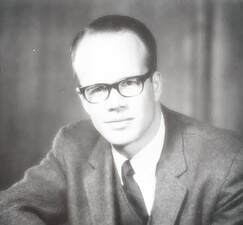James Montgomery Boice
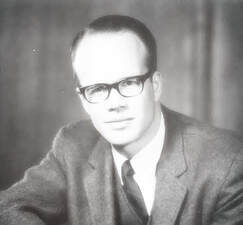
James Montgomery Boice (July 7, 1938 – June 15, 2000) was an American Reformed Christian theologian, Bible teacher, author, and speaker known for his writing on the authority of Scripture and the defence of Biblical inerrancy. He was also the Senior Minister of Tenth Presbyterian Church in Philadelphia from 1968 until his death., was an articulate spokesman for the Reformed faith in America and around the world. He had a deep burden for the spiritual needs of the French-speaking world and for the establishment of a vigorous, witnessing church in France.
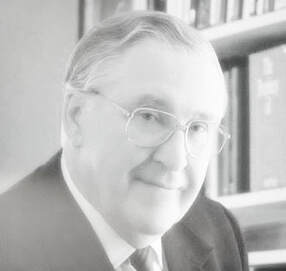 Eric Alexander Files
Eric Alexander Files
"He was a complete exemplar of this text—for me—to live is Christ and to die is gain. No one but a true Christian could make this statement. "Christ is life to me" was his distinct and distinguished testimony from his earliest days, and his leaving this world so few days ago was an exodus into glory…I can just imagine our dearly loved brother there, truly mesmerized as he had never been before, saying, "No eye has seen, no ear has heard, no mind had conceived what God has prepared for those who love him "…There is no human language, there is no human word to express it, but because of what it means to depart and be with Christ which is far better, all we may say today is that "far better" covers everything. It is far better to be in glory than to be here in this world. We will never really understand the full meaning of it until, by God's grace, we join him. See that you join him. See that you join him."
--Eric Alexander, speaking at memorial for Jim Boice; June 2000
--Eric Alexander, speaking at memorial for Jim Boice; June 2000
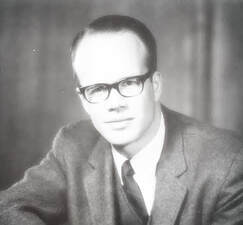 James Boice Files
James Boice Files
"One person who knows a great deal about biblical meditation is Ronald A. Jenson, former President of the School of Theology of the International Christian Graduate University. In a booklet published by the International Council of Biblical Inerrancy, he tells how he had developed a successful pornography business when he was still in elementary school, buying sexually explicit literature and pictures and selling them to friends at a profit. He ran it out of his basement. When he became a Christian, what he was and what he had been doing changed dramatically. But although he abandoned his pornography business and got active in church work, he still had trouble with his thought life because the strong sexual material he had been feeding on had become part of what he was. He described it by saying, "When you sow a thought, you reap an action. When you sow that action, you reap a habit. When you sow that habit, you reap a character. When you sow that character, you reap a destiny."1 He had been sowing lustful thoughts, and a lustful character had been formed.
What delivered him from a pornographic pattern of life was discovering how to meditate on the Bible's teaching. He learned how to be transformed “by the renewing of [his] mind” (Rom. 12:2). Meditation involved thinking what the passage he was studying was about and internalizing it, imagining what it would mean for him in specific acts of conduct. He even worked on singing specific verses to whatever tune seemed to fit them, because singing helped fix the biblical truths in his mind. He was changed. His conclusion was this: “Biblical meditation is hard work, but the reward is worth it—a consistent, victorious Christian life.”
--James Boice; Theme: The Connection between Prayer and Bible Study
What delivered him from a pornographic pattern of life was discovering how to meditate on the Bible's teaching. He learned how to be transformed “by the renewing of [his] mind” (Rom. 12:2). Meditation involved thinking what the passage he was studying was about and internalizing it, imagining what it would mean for him in specific acts of conduct. He even worked on singing specific verses to whatever tune seemed to fit them, because singing helped fix the biblical truths in his mind. He was changed. His conclusion was this: “Biblical meditation is hard work, but the reward is worth it—a consistent, victorious Christian life.”
--James Boice; Theme: The Connection between Prayer and Bible Study
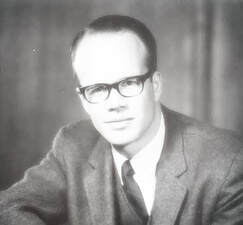 James Boice Files
James Boice Files
"Mary met Jesus as her son at the manger, but she did not meet Him as her Savior until she met Him at the cross. Mary needed to lose Jesus as a son in order to find Him as a Savior. Mary needed to take her place with the other disciples, standing as a sinner at the foot of the cross. She needed Jesus to die for her own sins.”
― James Montgomery Boice, 14 Words from Jesus; 2013
 James Boice Files
James Boice Files
“The thief on the cross had to be the luckiest man alive. He was nothing more than a low-life criminal, a loser. He had committed a crime. He was convicted for it, and he was crucified for it. So he had no future; he was going nowhere; or worse, he was going to hell. Yet of all the criminals, on all the crosses, on all the hills in the Roman Empire, he was crucified next to Jesus Christ.”
― James Montgomery Boice, 14 Words from Jesus; 2013
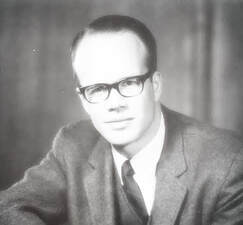 James Boice Files
James Boice Files
“The chief problem with television is that, for those who watch it consistently, it undermines and eventually destroys the ability to think. This is because it communicates primarily images, not by words, and words are necessary if we are to perceive logical connections and make judgments as to what is right and wrong.”
― James Montgomery Boice
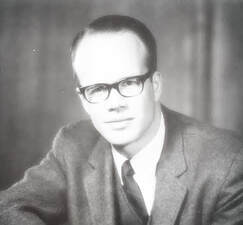 James Boice Files
James Boice Files
“No one should take comfort in sin. The church is impure; we cannot always distinguish between the wheat and tares in this age. But a day is coming when that distinction will be made. The harvest will come. The wheat will be gathered into God’s barn, and the tares will be burned. As a result, we should examine ourselves as to whether we are true children of God or not. And we should be careful to “confirm [our] calling and election,” as Peter indicates (2 Pet. 1:10).”
― James Montgomery Boice, The Parables of Jesus
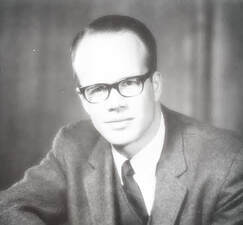 James Boice Files
James Boice Files
“ten thousand talents. It is hard to estimate exactly what that was worth, and it may in fact only mean the largest debt conceivable, “ten thousand” being one of the largest common numbers and a “talent” being the largest denomination of currency. However, if we do estimate it in dollars, we derive some interesting results. A talent was seventy-five pounds, so ten thousand talents would be 750,000 pounds. We do not know whether they were talents of gold or silver. But since Jesus is trying to exaggerate the contrast between this great debt and the relatively small debt of verse 28, we may suppose that He was thinking of the greater of the two talents, namely, gold. In troy weight there are twelve ounces to a pound. So we are now dealing with 750,000 times 12, or 9 million ounces of gold. Assuming that gold is selling at about $400 an ounce, we come to a figure of $3,600 million (three trillion six hundred million dollars). That is beyond our comprehension, which is precisely Christ’s point. It is an astronomical debt, entirely beyond this servant’s or anybody else’s capacity to pay.”
― James Montgomery Boice, The Parables of Jesus; 1983
― James Montgomery Boice, The Parables of Jesus; 1983
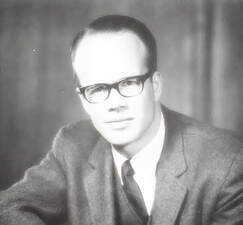 James Boice Files
James Boice Files
“if we are justified we will have that nature of God that will increasingly and inevitably express itself in forgiveness, just as God for Christ’s sake has forgiven us, we will be able to pray, “Forgive us our debts, as we also have forgiven our debtors” (Matt. 6:12). The Lutherans says: “We are justified by faith alone, but not by a faith which is alone.” It is always faith and life: first, the life of God within; then faith; then, the expression of the inner, divine life in what we do. The conclusion is: if we do not forgive, we are not forgiven. We are not justified. We are not God’s children, regardless of what our profession may be.”
― James Montgomery Boice, The Parables of Jesus; 1983
― James Montgomery Boice, The Parables of Jesus; 1983


